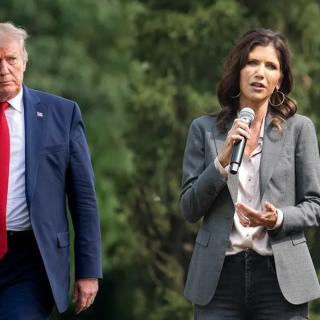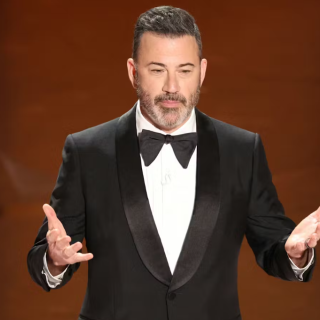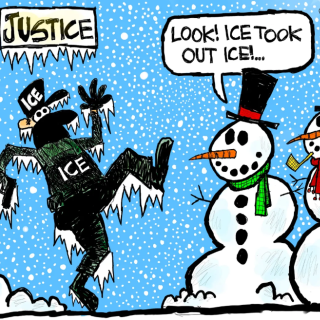I have written about Columbus’ identity crisis and the failure of its media and especially the non-daily, non-news Columbus Dispatch in both the Columbus Free Press and ColumbusUnderground, but I have only touched briefly on WOSU, the Ohio State University-owned, local National Public Radio affiliate. (See “Columbus’ identity crisis and its media”; “Response to Columbus Alive, ‘The list: Reasons that Columbus Underground opinion piece is trash,’ by Andy Downing and Joel Oliphint, Columbus Alive, July 26: A visit to journalism fantasy land”; and “The Columbus Dispatch: The decline of a metropolitan daily newspaper.”)
WOSU cries out loudly for attention. I have hesitated because I’m not sure how to discuss or criticize a media entity that functions actively as a self-parody, not a responsible, community-serving part of our public media.
My perspective is unusual. My household has been a contributing member of NPR and PBS since their inception in the mid-1970s. In Dallas and San Antonio from 1975 to 2004, I collaborated actively with both radio and TV affiliates. I worked with reporters and producers, and served as major advisor on nationally award-winning productions. I assist stations across the country on reporting and am interviewed on a range of subjects. But never on WOSU, whose “news content director,” Mike Thompson, has no interest in knowledge or perspective.
As I contributed actively and helped frame the national discussion on the nondebate over critical race theory in 2021, WOSU joined the Columbus Dispatch, Columbus Metropolitan Club, and others in the city in not having a local expert who is a white male participate in their public and broadcast forums. This contrasts with OSU’s Kirwan Institute for the Study of Race and Ethnicity, who reached out to me early, and NPR affiliates across the country and PBS News Hour. As with the management of the Dispatch, I have contacted the managers at WOSU (and their official supervisors at OSU) only to be rebuffed rudely. Yet I care about NPR and Columbus.
I do not ask my questions lightly or in jest. As I compare NPR affiliates across the U.S. (and the CBC in Canada and BBC in the U.K.), I find none that functions as poorly as WOSU. This begins with their long-standing transmission problems, including frequent periods of silent air time, broadcasts of multiple feeds simultaneously, and playing the wrong feed at the required time. Former general manager Tom Rieland cited transformer problems but would not respond to questions about engineers. These lapses are never explained nor are apologies given. They continue with on-air hosts especially in the morning stumbling over the pronunciation of their own names, the time and date, and reading from their scripts. These exceed occasional, random misstatements. Recently, in repeatedly reminding listeners that WOSU relocated to a new office building across High St. from OSU’s campus, the announcer insisted that they “broadcast from the heart of campus.”
WOSU repeatedly touts its “largest” either central Ohio or Ohio and “award-winning, best in Ohio” news team. Numbers are never given, and when an interested listener takes the trouble to check, there is no evidence of “largest,” and the station is ranked as “one of the best,” not “the best.” Contradicting the boasting, there is very little investigative reporting, and no local reporting on weekends. WOSU appears unaware that news does not take weekends off.
I have reported errors in local news reports by telephone and email often. Not once have they been acknowledged. Never has a correction or a retraction been aired. Some are very consequential and on divisive issues, for example, Central Ohio city and county mask mandates in communities and schools.
With almost all other Columbus organizations, unlike NPR affiliates in other cities, WOSU is an uncritical city booster. Under Mike Thompson’s direction, WOSU’s news coverage lacks direction. (See my “Columbus’ identity crisis and its media” and “Columbus, Ohio, searches to be a city: The myth of the Columbus Way.”)
Numbers and rankings are not determinative by themselves. But WOSU suffered a large exodus of its best and long-serving reporters during 2020-2021, many of them women. Neither the station nor OSU (whose Office of Personnel dismissed the allegations) ever acknowledged accused offender Mike Thompson’s “verbal abuse” without a documented pubic report. Among Columbus media, only the non-news USA Today/Gannett-owned Columbus Alive reported it. All others were conspicuously silent. The station slowly supplements its reduced personnel.
“All Sides with Ann Fisher” occupies more hours daily, weekly, monthly, annually than any other program including NPR’s national news programs. From 10 AM to 12 PM every day, repeated 8-10 PM, again randomly during the week, and yet again on following weeks with the original date never mentioned, the program bombards listeners. Fisher lacks general knowledge; cannot ask a coherent, responsible, or knowledgeable question; cannot speak proper English grammar or pronounce words; and only occasionally completes a sentence. She is not a professional radio host or responsible journalist.
Fisher’s guests are dominated by bloggers and podcasters masquerading as experts and by authors of new books whose places apparently are secured by their agents or publicists with no attention to the quality or reputability of the work. Unlike reputable interview/talk shows, Fisher’s guests show no signs of “pre-briefing.” The “conversations” are disorganized and the discussions meandering. Most surprising to me as a guest on other NPR affiliates is how often the interviewees are surprised by and do not understand Fisher’s muddled questions. Responsible producers do not allow that to happen.
When I queried WOSU’s management about the sheer quantity of air time that “All Sides” occupies, they responded by claiming without evidence that it receives the station’s highest volume of viewership at 10 AM-12PM. I refer readers to WCPN in Cleveland’s excellently produced and hosted “The Sound of Ideas” talk show for a dramatic contrast.
Thompson’s “Columbus on the Record” raises more problems. Host Thompson asks poorly formulated, unknowledgeable questions to guests who in a majority of cases are unable or unwilling to answer them. These “talking heads” are not selected by their qualifications or expertise but one from column A) right-wing Republican; column B) a Democrat, “liberal,” or “progressive” of some stripe; and Column C) a representative of either the media or an advocacy group. In this old-fashioned menu approach, the program parallels the Columbus Dispatch’s Opinion page. The program runs first on WOSU TV on Friday evenings and then is repeated on the radio very early on Saturday mornings, preempting the BBC broadcasts.
All NPR and PBS stations subject their members, subscribers, supporters, and others in their audience to fund-raising pledge and membership drives two or more times each year. They are, I admit, a necessary evil. But as I listen around the nation, I notice that some are much better organized, coordinated, and respectful of their audiences than others. WOSU’s are not in my acceptable category. When questioned about their frequency, the station does not count its “Match Days” as “pledge drives.”
Not only do they preempt more regular programming than other affiliates, but they are more repetitive. They also overflow with rarely documented self-praise that is more offending than attracting. Reports of total numbers and dollar-value of pledges are confused and confusing. As far as I can tell, the station does not often match its announced target. My household contributes a small amount annually because we remain committed to NPR and PBS if not WOSU.
When WOSU announced its new general manager beginning in January, Ronnie Agnew, I immediately wrote to him, asking to begin a constructive conversation about the station. True to WOSU form, in three months, he has not responded.
----------------------------------------
Harvey J. Graff is Professor Emeritus of English and History and Ohio Eminent Scholar at The Ohio State University. He is the author of many books on social history. His Searching for Literacy: The Social and Intellectual Origins of Literacy Studies is forthcoming. His essays appear in Inside Higher Education, Times Higher Education, Washington Monthly, Academe, Publishers Weekly, Columbus Free Press, and other outlets. Specialties include the history and present condition of literacy and education including higher education, children and families, cities, interdisciplinarity, and contemporary politics, culture, and society.



